Looking Good vs. Doing Good: From Public Relations to Public Service Relations- A Witnessed Account of Nigeria Customs Service
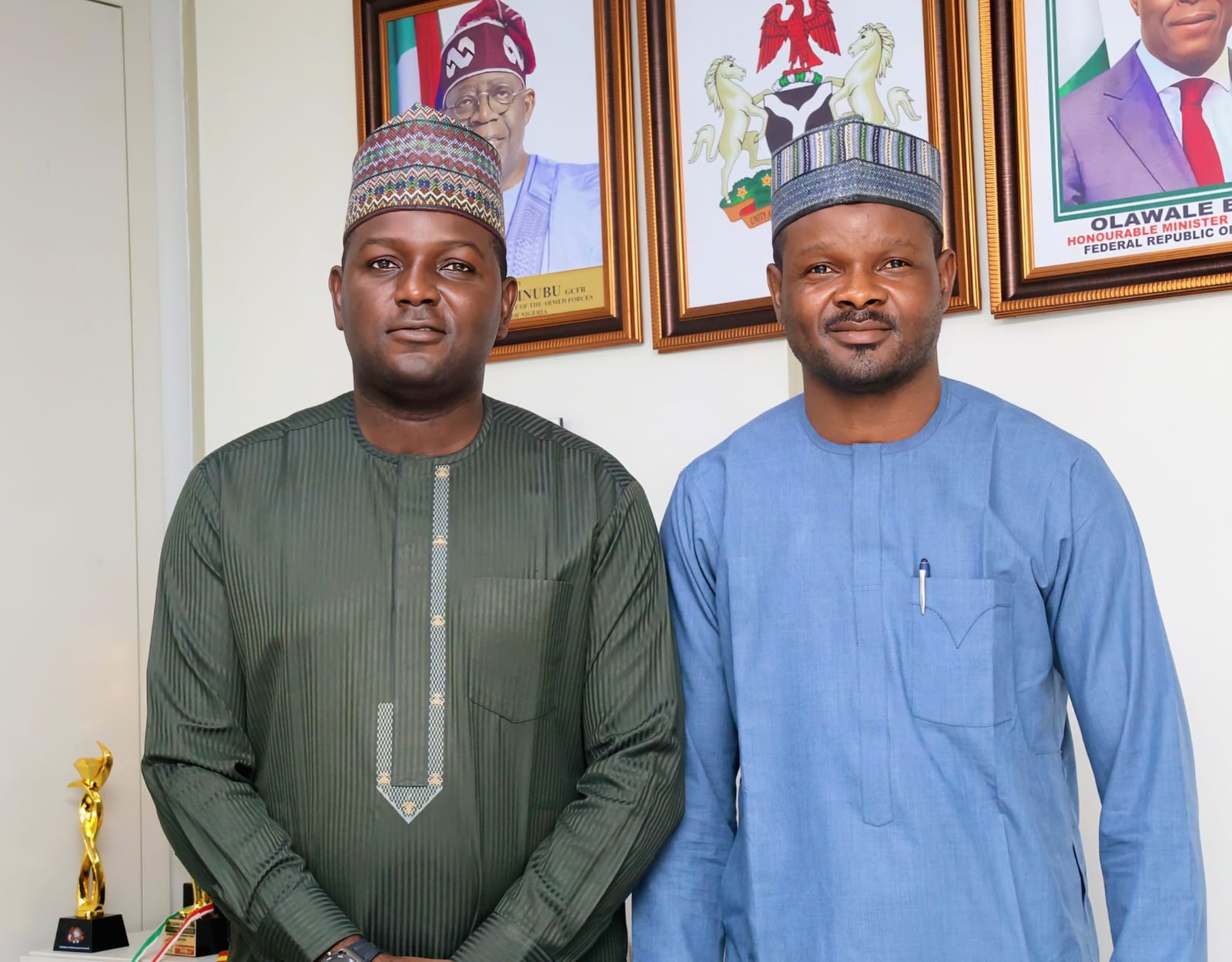
By John Adeoluwa Ogunrinde
I was honoured with an invitation from the Comptroller General of Customs Bashir Adewale Adeniyi PhD, MFR through the National PRO Abdullahi Maiwada PhD, to participate as a facilitator and a guest speaker at the 2025 Public Relations Workshop themed “Beyond Masters of Ceremonies:
The Strategic Role of Public Relations Officers for Institutional Growth and Stakeholder Trust”.
I was tasked to speak on the topic “Understanding Social Media Algorithms, Institutional Storytelling Approach and Strategic Messaging for Effective Communication” and perhaps deemed qualified to deliver on this topic as it sits right at the heart of my ongoing doctoral research on social media algorithms in Nigeria.
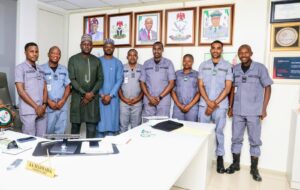 My presentation covers the anatomical change that PR has experienced as a concept and as a practice, through the evolution of digital technology. I introduced the concept of “tech-relating” to encapsulate the necessity of technology adoption and the literacy that comes with it for practitioners.
My presentation covers the anatomical change that PR has experienced as a concept and as a practice, through the evolution of digital technology. I introduced the concept of “tech-relating” to encapsulate the necessity of technology adoption and the literacy that comes with it for practitioners.
Explaining the unique position of NCS in generating endless social media contents, and how those contents could be better curated for visibility in the algorithmic space; I emphasise on format, visuals, sounds, captivation, and corporate hilarity among other key points, relying heavily on first hand evidence from my primary data collection.
Though I could well recognise the sponsoring purpose of this grand PR event and the team’s honesty of ambition towards efficiency, but I refused to be mesmerised by the colourful PR blanket the Customs was dazzling.
In my knowledge, the idea of Public Relations is often applied as a corporate deodorant; organisations pull it from their marketing arsenal as a defensive mechanism to counter the public’s occasional repulsion of their brand. And it’s a routine to mount clever PRO’s at the frontline to defend the reputation of an organisation that’s barely serving its purpose halfway.
As an outsider with a rare privilege to have an inside view, my eyes were searching to pick up on the typical facade by which many have described public services in Nigeria. “They pretend to be working hard, but they hardly make anything work; or maybe they are really trying to do something, but terribly littered and sloppy at it. Which one was it with NCS?
Prior to the event and much earlier, I had been invited to the NCS headquarter in Abuja and taken through its operational chain on the ride and guide of the PR unit and the media team, and from this I was hoping to scoop my exclusive.
The experience I got revealed details that were inconsistent with my hypothesis.
Considering PR as popularly practiced in the domestic corporate, there is an idealised but illusory capability of PR to convert apathy, ignorance, hostility and prejudice by deploying what’s often called strategic communication. The delusional overreliance on strategic communication to build a sterling reputation, launder a terribly soiled corporate image, has -over the time- bred professional ambiguity, in which practitioners have a blurry vision identifying classical public relations from salesmanship. Perception and impression management have rose to prominence, while substance, essence and service have sunk. So, there is this professional passing off of good talk as good PR.
This trend is boldly manifested in the conventional allocation of resources to media appearances than to a socially responsible service delivery; in any case looking good was always essential, while doing good was merely an option. With the corporate environment like this largely dominated by the private sector, my default expectation from the public sector and especially in a regimented legacy institution like Nigeria Customs Service was to see a system that is perhaps below sameness.
But far from my presumption, the organisation had what I call a positive communication imbalance. The NCS was not trying to look good, and by some measure could be said to be doing more discretionary public good than is talked about. No better place to explain this positive imbalance than through its ongoing Customs Modernisation Project. I was welcomed to a large room the size of an event hall, this room heavily equipped and computerised, all the screens lit- showing a software interface, officers steady at their desks, all busy coordinating nationwide productivity- from the maritime, to aviation, and the land border; duty, excise, clearance, point of origin, bill of lading, were some of the words mostly used by the assistant comptroller who was explaining the process to me, while I could see other officers opening multiple windows and tabs on their computer screens to manage as many transactions as possible under an intense deadline pressure. These were the people making it all happen, I said to myself.
The term B’odogwu was mentioned a number of times, and its oddity raised my curiosity; which as I later found was a recent ground-breaking solution technology made in Nigeria and customised for NCS as a unified trade management portal, it was built to simplify importations for Nigerians and speed up waiting time. Looking around this massive investment in technology, it was a dedication to efficiency, to seamlessness, to resilience and most essentially to public convenience and accessibility in a country often labelled as lagging in development; the icing on the cake was that B’odogwu was made in Nigeria and named as Nigerian.
Back to Public Relations, I went around other ICT facilities, including a radio transmission suite, a ready-to-use TV studio, dedicated units for graphics design, videography, and a team of media personnel all wearing a ‘polo shirt’ branded NCBN. NCBN is an acronym for Nigeria Customs Broadcasting Network, it was undergoing operational development in the hands of a private operator who has partnered with the Customs.
The room was quiet after this long tour, members of the PR unit were itching for my positive assessment I believe, but the question in my mind did not align with the temperature. I was going to ask the question they might not like, they were ranked officers in khaki with intimidating stature and a big office; but I asked anyway: I asked why they were doing such an incredible public service, holding the nation’s economic spine together and yet their image is horribly perceived in the public; why was the officer at the checking point more vivid in people’s mind than the superintend juggling multiple tasks for long hours to make life easier for Nigerian traders, why do hundreds of millions of Nigerians have no clue about B’odogwu and the Customs Modernisation Project?
Why are people unaware of the long list of CSR projects executed every year- several schools, health centres, community support projects that have been built, improved, or renovated by Nigeria Customs across the states and regions of the federation, the trade facilitation policies, millions of illicit drugs taken off the streets, wild life and environmental preservation efforts, the Nigeria customs’s leadership on the global stage, the several international recognition within and outside the continent; many international trade agreements spearheaded and executed for Nigerians, etc. Why do people mainly see Customs through the ancillary of stop and search, when indeed it is the institution that keeps the country’s economic engine rolling?
My conclusion is that the Nigeria Customs’ focus on Public Service Relations far outweighs its consideration to manage public impressions. I reckon the organisation took this direction of travel rather inadvertently, perhaps due to the long-standing legacy of classifying every piece of information in government agencies, or due to its regimented nature- in which action is superimposed over rhetorics.
The result however is a highly service-concentrated organisation that delivers much more to the public than the public itself is aware of, and this is not just because it was statutorily bound to perform these functions but perhaps because it has sustained a decade-long period of less-partisan and disciplined leadership from Col. Hameed Ali Rtd. to another visionary CG. Bashir Adewale Adeniyi; and second because these leaders have exhibited a level of discretionary nobility. This stability in strong leadership has put NCS on a consistent upward trajectory towards corporate renewal, entrenching a culture of mandatory delivery for the public, and a substantial, performance-based reputation built from inside out, as against the cosmetic management of public perception via clever speech and media stunt.
The sharp contrasting of rampant short circuit PR against the service-based PR observed at NCS is to diagnose the reputation crisis that Public Relations itself is soaked in, and to call a rather overdue attention of PR managers to the classical Public Relations whose tenets strongly uphold the necessity of internal growth-work required by organisations to attain their reputational ambitions. As documented in PR’s finest professional papers: the implementation of planned programmes and actions that serve the interest of the organization (by improving itself) and the public interest (by delivering the best possible service consistently).
I was disappointed to see my hypothesis defeated- that NCS like the private sector image merchants engages in short circuit PR- doing great publicity for a half-good service; rather I discover a system that is exhaustively manoeuvring a restrictive political climate and security risks, actively working its own inner machine to deliver a gradually improved service to the public who barely knows the half of it, regardless of the historical bad apples occasionally found within its ranks.
The room was uncomfortably silent after my questions and comments; my observations mirrored the reality they already knew and trying hard to improve. In his response the National PRO Abdullahi Maiwada PhD, listed an array of communication efforts they now engage in: developing reputation management guide against which the conduct of every officer is bench-marked, launching public feedback mechanism and performance evaluation system, an active Customs complain and enquiry phone lines, ongoing improvement training, and also annual PR and communication workshop- running its second edition to which I had been invited.
There are early signs of a shift in public perception, the NCS PR team has been noted as one of the best in recent Nigeria, winning public engagement awards on multiple occasions home and abroad since 2023. Dr. Maiwaida is a communication expert, his CG an excellent PR professional, coordinating with a consensus on the need to scale up communication effort to balance with their enormous statutory and discretional public services, but only on the condition that “Looking good is premised on Doing good” and that PR practice that is based on social responsibility and service delivery would accelerate the nation’s human and economic development.
John Adeoluwa Ogunrinde writes from London Metropolitan University, United Kingdom.






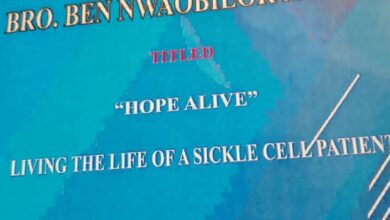
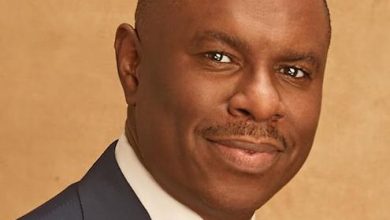
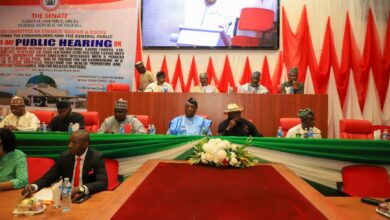
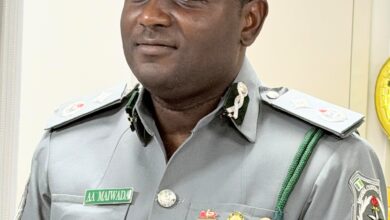


Kho game khổng lồ hấp dẫn thành viên tham gia tại xn88 bshrf chính thức không thể không kể đến dòng nổ hũ với phần thưởng lên tới hàng tỷ đồng. Tại đây có hàng trăm sản phẩm khác nhau với giao diện, cách chơi khác nhau, đưa tới trải nghiệm thú vị, không bao giờ nhàm chán cho thành viên tham gia.
Đây là phương thức liên hệ phổ biến và nhanh chóng nhất tại xn88 app. Bạn có thể dễ dàng truy cập tính năng trò chuyện trực tiếp ngay trên website hoặc ứng dụng di động của nhà cái. Nhân viên hỗ trợ khách hàng của trang web luôn sẵn sàng túc trực 24/7 để giải đáp mọi thắc mắc của bạn một cách chuyên nghiệp và tận tình.
Điều này đã giúp 888slot có lừa đảo không ngày càng được yêu chuộng, và khi tìm hiểu về 888slot có lừa đảo không, bạn sẽ cảm thấy hài lòng và có nhiều gợi ý để lựa chọn. Nhà cái đã được tổ chức First Cagayan Leisure & Resort Corporation (CEZA) cấp phép. Trụ sở chính của nhà cái đặt tại Makati, Metro Manila (Philippin).
Những sản phẩm cá cược thể thao luôn được thiết kế với 4 phong cách khác nhau như OW – Sự đa dạng, TP – Tượng trưng cho hiện đại, SB – Sự truyền thống, KS – Trải nghiệm. Bảng tỷ lệ kèo 888slot freebet chính thức luôn cập nhật mới mỗi ngày để tiện cho anh em chủ động tham khảo, tỷ lệ thưởng luôn hấp dẫn, tối ưu cơ hội chiến thắng cho thành viên tham gia.
certainly like your website but you need to check the
spelling on several of your posts. A number of them are rife with spelling issues and
I to find it very bothersome to inform the reality then again I’ll definitely come back again.
Feel free to surf to my web-site … kent казино лицензия
Truy cập vào link chính thức của link 188v để tải ứng dụng. Link này đảm bảo bạn có thể tải ứng dụng một cách an toàn và không gặp phải các vấn đề về bảo mật.